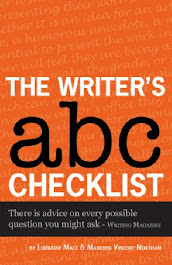I’m a Yorkshireman; I don’t believe in free.
If I ask a plumber to fit a new tap in the kitchen he has a certain amount of money to pay out: cost of the tap, fittings washers, etc. It probably comes to just a few pounds, so why does he charge me £50 for the job? I pay for his time and expertise.
Why, then, do people assume that my time and expertise as a writer has no value? I work as hard as our plumber, the job takes a lot longer than he spends fitting a new tap. Why should I not be paid for that time?
That’s the underlying reason for my rejection of ‘free’. When I look at a new magazine or site calling for contributions, the moment I see the words “we are unable to pay you at this time,” I come away. Would they expect the plumber to fit their new tap for free just because they’re short of capital?
The same is true of my self-published titles. Their value as a commodity I based upon what I believe they’re worth. If I get that wrong, the thing doesn’t sell and I go back to the drawing board. I don’t give it away.
So how come I’m giving away my latest effort, Tales from the STAC Casebook?
Effective advertising is expensive. Ineffective advertising is just as costly. We’re in the middle of an economic recession and people are tightening their belts. My combined sales for the whole of January and the first two weeks of February are slightly less than those for the first two weeks of December.
Free, however, has a remarkable effect. People find free without the need for advertising. With some publicity to back it up, ever increasing numbers of people find free, and in doing so, they find links to my other titles which are included in the back of free.
This isn’t just theory. Within hours of uploading Tales from the STAC Casebook there were knock-on sales. Free works: I can recommend free.
If there’s a problem with free, it’s one of public perception. Free means badly written garbage, cobbled together in a hurry. There’s an element of truth in it, but to be fair, it can be said about many paid e-books, too.
If you’re going for free, don’t skimp on the work. Maureen edited Tales from the STAC Casebook and also consulted on the cover image. It is of the same editorial and design standard as all my other titles.
If you’re putting out e-books, if you’re setting up a website where you intend to put up short stories or articles as free reads, the word free should not mean shoddy. That work will become a window on your writing world, and second best should never be good enough.
Neither should it be a blatant advertising vehicle. Tales from the STAC Casebook is what the title suggests. A brace of short crime capers with Joe Murray, Chair of the Sanford 3rd Age Club. They’re constructed with the same care and attention to detail as the novels. They’re entertaining and intriguing (even if I do say it myself) and links to other titles are contained within the front and back matter. They don’t interrupt the stories.
Your readers download to be entertained, not pitched. So entertain them. It will help establish your reputation as a writer and entertainer, someone the reader will want more of. Sales will follow quite naturally.
It’s early days yet, but notwithstanding my ingrained Yorkshire thrift, I can recommend free.
David lives and works as a novelist on the northeast outskirts of Manchester, England. He is a prolific author, having produced works in cosy crime, psycho-horror, sci-fi and humour.
The latest book in his popular whodunit series starring the members of the Sanford 3rd Age Club, The Filey Connection, will be published soon by Crooked {Cat} Publishing. You can read free sample chapters of David’s books HERE.
David's website.
.









2 comments:
I know that ebooks that can be downloaded for free do really well. They shoot up the Amazon charts. Hurrah!
But - what does that say about how we value our writing? Since Christmas the prices of ebooks on Amazon have plummeted - so far I've resisted giving my books away. But I may have to, just for 24 hours, just to make a dent in the wretched rankings.
But it goes against the grain. I did the travelling (mine is a travel book), wrote the book, paid for the editor and copy-editor - and all that is worth something, even if it is only 77p at the moment!
I think we'd all agree with you, Jo. The problem writers' face is that there are zillions of ebooks vying for attention.
What David has done here is give away two short stories as a way of tempting readers to buy his full-length books.
As a marketing ploy, this 'free sample' approach seems to work.
Post a Comment